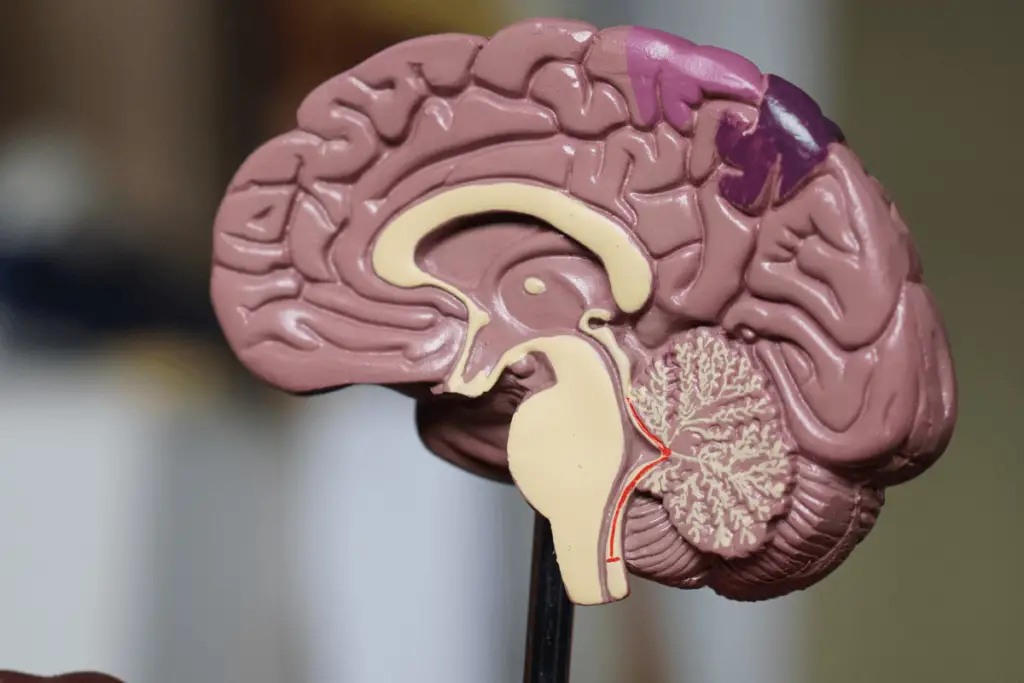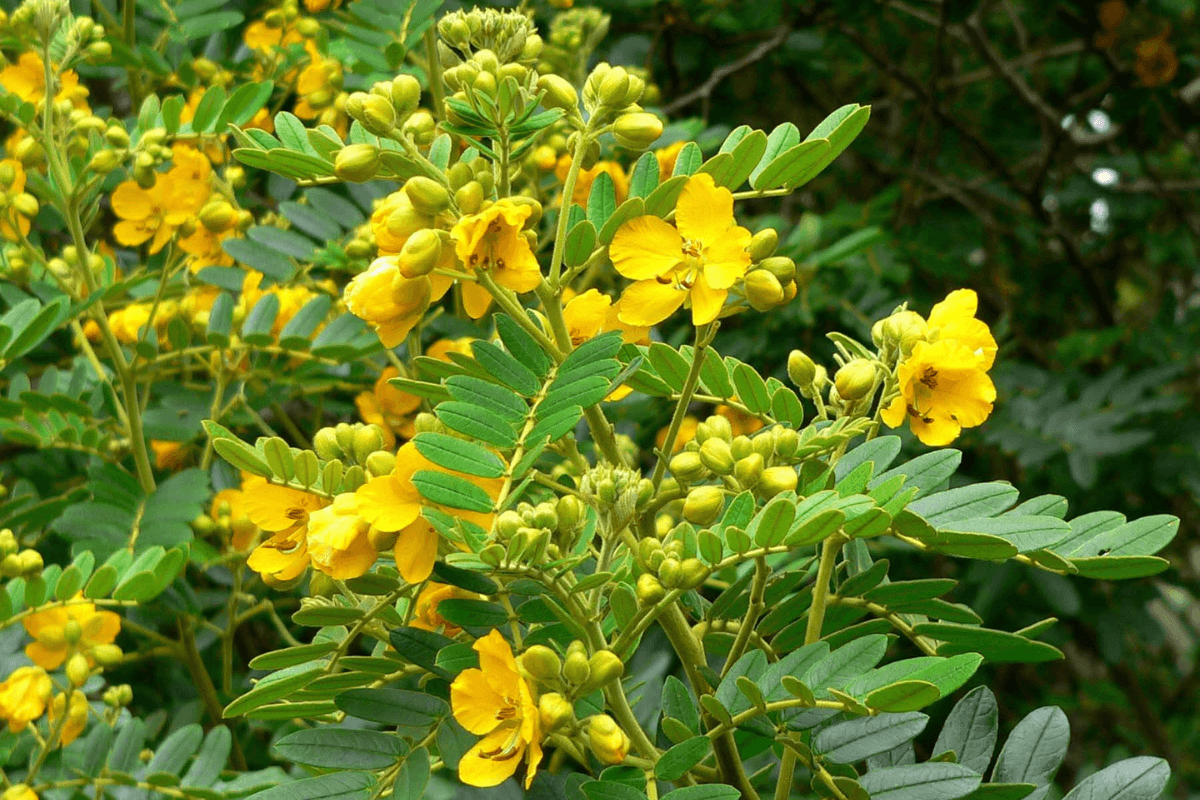Cassia Acutifolia
Senna is a member of the pea family and a native plant of the areas of Africa, the Middle East, and India. The parts of Senna used as an herb are the leaf, seed, and pod of Alexandria Senna and Tinnevelley Senna. Many botanists collectively refer to them both as Senna Alexandrina. Today it is cultivated commercially in the Middle East and the Tennevelly region of Southern India.
History
Traditionally Senna was used in love sachets in the Middle East. In China, they named senna Fan-Hsieh-Yeh, which means “foreign-country laxative herb.” Senna (Cassia Acutifolia) is one of the oldest known varieties of herbal medicines used in mankind’s herbal medical history. Senna is included in most pharmacopeias of the world and was first used by Arabian physicians in the ninth century. Two Arabian physicians, Serapion and Sesue, are said to have given the herb its Arabic name ‘Senna’ and employed it as a purgative. By 1640, Senna was cultivated and utilized in England for its cathartic properties.
Senna’s Chemical Constituents and Actions
Senna is a purgative, similar to aloe and rhubarb in having as active ingredients anthraquinone derivatives and their glucosides. Senna is cathartic and should be used in combination with other cathartic herbs of its kind to work best (see below Senna Works Best) for bowel elimination. It should be used by itself only in cases of acute constipation. Senna has an anthraquinone that stimulates the nerves of the bowel wall encouraging peristaltic action.
The primary chemical constituents of Senna include anthraquinone glycosides (sennosides aloe-emodin and rhein), beta-sitosterol, flavones, essential oil, mucilage, mucin, resin, tannin, and tartaric acid. The sennosides irritate the large intestinal lining, causing peristaltic action of the smooth muscles that push stool through the intestine causing bowel evacuation. It also assists in the temporary retention of fluid in the large intestine, thus contributing to softer stools. The pods are milder in their effects than the seeds of Senna as they contain less of the resin responsible for griping.

Wild Senna Perennial Medicinal Herb – Get Yours Here.
Both the leaves and pods of Senna are used in many over-the-counter pharmaceutical preparations. Senna is actually a common ingredient used to make some sore throat remedies. The herb is most often used in powder form, drank as a tea, or taken as a supplement. Senna is one of the few herbal medicines approved by the United States Food and Drug Administration (FDA). Thus, Senna’s over-the-counter use makes it one of the most commonly used herbal medicines in the United States (for added safety look for the words Certified Organic on the label).
Uses
Utilized to treat conditions like constipation and hemorrhoids. Reduce fevers, biliousness, bad breath, colic, gallstones, gout, jaundice, menstruation, mouth sores, obesity, boils, pimples, and rheumatism. Treat skin diseases and kill parasites.
Why Cleanse and Detox the Colon?
Cancer-Causing Poisons and Pollutants Found in a Toxic Colon:
Insecticides, lead, aluminum, selenium, mercury, cadmium, strontium, cesium, and many kinds of inorganic dust including traces of nerve gases. Other Chemicals: Phenol, Cadaverin, Agamatine, Indol, Sulphurretted Hydrogen, Cresol, Butyric Acid, Botulin, Putrescin, Urrobilin, Histidine, Ammonia, Muscarine, Methylmercaptan, Indican, Methygandinine, Idoethylamine, Sulpherroglobine, Ptomarropine, Pentamethy Lendiamine, Neurin, Sepsin.
Health Problems Associated With a Toxic Colon
Alzheimer’s, Headache (migraine and common), Lower back and Neck Pain, Skin Problems, and Brain Fog. Chronic Fatigue, Cancer, Autoimmune Diseases, Allergies, Arthritis, Body Odor. Bad Breath, Brittle Nails and hair, Blood Pressure (High or Lo), Depression, Fibroids, Endometriosis, Gas. Constipation, Hot Flashes, Menopause, Infertility, Insomnia. Irritability, Low Sex Drive, Menstrual Irregularities, Overweight – Obesity. Pot Belly, Swelling Legs & Feet, Skin Problems, Bloated. Diverticulitis/Diverticulosis, Hemorrhoids, Prostate Problems. Dementia, Hormonal Imbalance, Abdominal Cramps. Vision disturbances, Food Sensitivities, Leg Pains, Kidney and Liver Disorders. Skin Wrinkles, Fibrocystic Breasts, Acid Reflux, Parasites and worms.

Senna’s Influence on the Body
Bitter, pungent, cooling, or purging, cathartic, antiseptic, antispasmodic, cholagogue, cleansing, vermifuge and a blood purifier.
Senna Functions Optimally When Combined With Other Herbs
When used in combination with these other bowel herbs and assistant herbs that relax and increase the natural function of the bowel such as the bowel cleansing combination below.
Bowel Cleanse Formula with Senna
Senna, Cape Aloe leaf, Cascara Sagrada bark, Barberry root. Turkey Rhubarb root, Garlic bulb, Ginger root. Fennel seed, Black Walnut hull, Clove bud. Wormwood leaf, Habanera Cayenne pepper (for added health benefits look for the words Certified Organic on the label).
Note
Senna additionally works as an effective vermifuge to destroy parasites and expel worms from the intestinal tract. Many of the other herbs in the above combination are also known to kill parasites such as Black Walnut hull, Clove bud, Garlic bulb, Barberry root Wormwood leaf, etc.
Senna can be used as a tea but should be served cold and combined with ginger, anise, or fennel to avoid griping. The suggested amount would be 2 oz 3 times a day.
Contraindications
Senna (Cassia Acutifolia) is not recommended if you are pregnant or menstruating. People with Crohn’s disease, ulcerative colitis, irritable bowel syndrome, and intestinal obstructions should not supplement with Senna. Be sure you check all the medications that you are taking for what are called contraindications. That is a list of things you do not want to take with your medication before anyone begins taking a supplement or herb. If you are unsure then be sure you check with your attending physician.
Breast Feeding
No adverse effects have been seen in breastfed infants whose mothers were receiving Senna. The American Academy of Pediatrics considers that Senna (Cassia Acutifolia) is therefore usually compatible with breastfeeding.
“Natural forces within us are the true healers of disease.” Hippocrates
Linking Senna to TheHerbProf.com
Senna is a potent herb with a rich history of medicinal use, and at TheHerbProf.com, we’re all about celebrating these herbal wonders! Here’s how our website and this subject harmonize:
- Senna Stories: We provide comprehensive information about senna, its medicinal properties, and its uses in herbal medicine.
- Herbal Highlights: Our site offers insights into how senna can be incorporated into your herbal regimen.
- Safety First: We guide you on how to use senna safely and effectively.
- Health and Wellness: Our focus is on promoting overall health and wellness, and senna plays a crucial role in this.
- Community Connection: Connect with others who are interested in senna and share your experiences.
So, whether you’re a senna enthusiast or just starting your herbal journey, TheHerbProf.com is your trusted guide. Remember, stay curious and stay healthy!
References:
Little Herb Encyclopedia, by Jack Ritchason; N.D., Woodland Publishing Incorporated, 1995
The Ultimate Healing System, Course Manual, Copyright 1985, Don Lepore
Planetary Herbology, Michael Tierra, C.A., N.D., Lotus Press, 1988
Handbook of Medicinal Herbs, by James A. Duke, Pub. CRP Second Edition 2007
The Complete Medicinal Herbal, by Penelope Ody, Published by Dorling Kindersley

